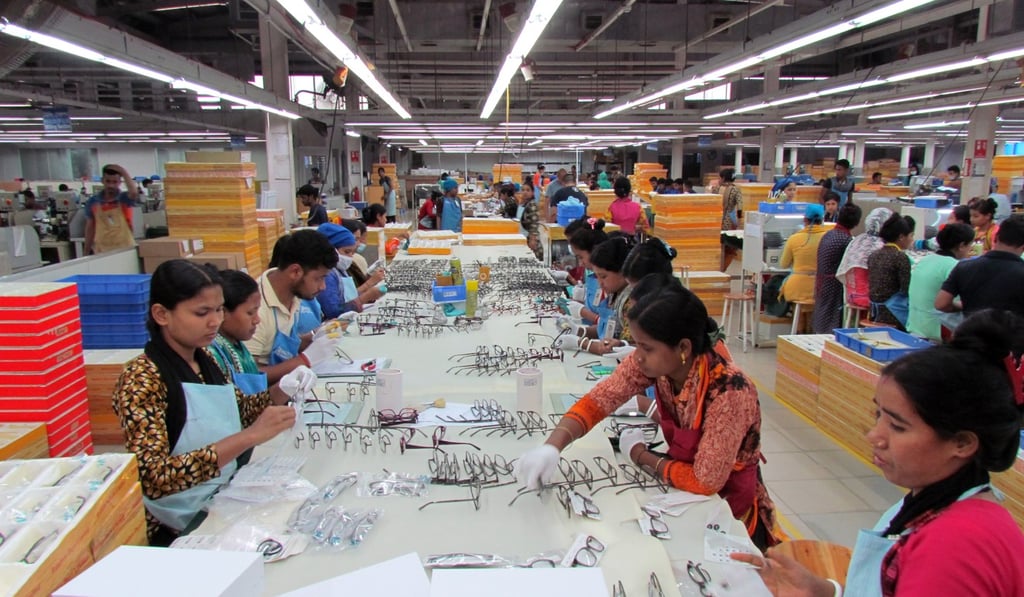Advertisement
Move over, ‘Made in China’. It’s the ‘Made in Bangladesh’ era now
- Soaring wages at home have seen many Chinese firms set up shop in Bangladesh, boosting its economic growth, expected at 8 per cent this year
- But while there has been a backlash against Chinese investments and workers in the Philippines and Indonesia, Dhaka is more welcoming
Reading Time:9 minutes
Why you can trust SCMP
0

When Chinese businessman Leo Zhuang Lifeng arrived in Dhaka 22 years ago, only one of the two luggage conveyor belts in the airport was functioning. The lighting wasn’t working properly, either.
The rundown airport in the capital of Bangladesh prepared many Chinese and foreign businessmen for what they were about to experience in the country, which was still an economic backwater at the time, with frequent power outages and inadequate infrastructure.
Zhuang, now 51, landed in Dhaka in 1997 to set up garment factories there, taking advantage of the low labour costs and abundant supply of workers. “Back then, there was a lack of daily commodities. It was not even easy to buy instant noodles,” said Zhuang, managing director of the LDC Group, which now employs about 20,000 workers in the country. “But Bangladesh has gone through tremendous changes over the years, though of course you cannot compare those changes to what China has experienced.”

His factory compounds were so big they resembled villages on their own. There were medical centres providing free consultation for staff and their family members, as well as day-care centres for their children.
Such compounds are now everywhere in Bangladesh, as Chinese and other foreign investors have kept coming. This investment has transformed the country into a manufacturing powerhouse with 3.5 million labourers making clothing for local and international brands such as Uniqlo and H&M. Luxury brands such as Michael Kors also have some products made in Bangladesh.
Advertisement